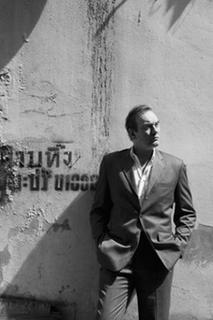 |
|
| photo: Chris Wise | |
Lawrence Osborne is the critically acclaimed and internationally bestselling author of the novels The Forgiven and The Ballad of a Small Player, and of six books of nonfiction, including The Wet and the Dry. He has written for the New York Times Magazine, the New Yorker, Forbes, Harper's and several other publications. He lives in Bangkok.
What appealed to you about setting a novel in Cambodia? What came to you first--a particular character or a scene or something else?
I had been living in and visiting the country for years. What came first were the landscapes themselves. The characters came later and were mostly based on people I came across at different times. But the emotional mood came from the place. And in Cambodia, more than most places, landscape includes the vast skies, which had always struck me. They seem to have their own ominous moods.
Like Hunters in the Dark, your previous novels The Forgiven and The Ballad of a Small Player feature British characters abroad, in Morocco and Macau, respectively. What is it about Westerners in foreign lands that makes for good storytelling?
I know a lot of such characters in real life. The old colonial tropes, of course, have disappeared, so what you have today are Western immigrants (to use the correct term) who are re-creating themselves without context and without roots--and without social surveillance. Often they do this for criminal or neurotic reasons, which as a writer using the thriller genre as a vehicle, I find interesting. These characters are the very opposite of "orientalists." For them, there is nothing exotic in the world now. There is only opportunity and desperation.
Hunters in the Dark has been described as being "filled with Hitchcockian twists and turns." Did you know from the start where the story was headed and how Robert's path would unfold?
Plots are strange things. A plot that is too rationally planned out never works, and I never write that way. I never know what's going to happen by the time I get to page 40. But as the story evolves, the unconscious seems to suggest connections and momentums (in the characters) that find a natural outcome. The writer should be as ignorant and unknowing as his characters, or there is no mystery. If you write slowly enough, this convergence of imaginary fates will occur without being forced.
There are characters in the novel who lived through Pol Pot's brutal regime in the 1970s, a period of several years during which a quarter of the country's population was killed. What challenges, if any, did you encounter incorporating this part of Cambodian history into the story?
I had covered the UN trial of [Khmer Rouge leader] Duch in Phnom Penh in 2008 and had met some of the survivors, including the famous painter Vann Nath. So I've heard many stories firsthand. But I didn't want to write about the 1970s directly. Everywhere around me I realized that people my own age had lived through it--they were hunters or hunted; you had to be one or the other. The regime made that inevitable. So the wounds lived on, as they always do. It was the lingering, hidden wounds that I wanted to touch on. But it would be an exaggeration to say that I incorporated that part of Cambodian history into the story--I very carefully avoided doing that.
You've led a nomadic life, including stints residing in New York, Paris, Istanbul and other places around the world. What territories do you plan to explore next, in real life and in fiction?
I live in Bangkok, and have for a few years, and it's a perfect base for me at the moment. However, I will likely return to my native Europe for future novels. Or at least I am considering doing so. It seems to be undergoing more violent crises than Southeast Asia, which no one would have predicted a few years back! --Shannon McKenna Schmidt

